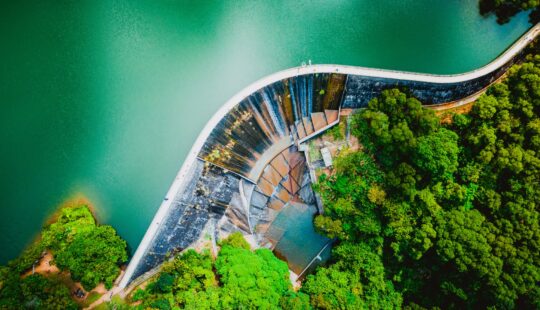Once upon a time, we easily traded off product sustainability for reasonable prices, quality, and safety. Now we expect companies to bake sustainability into business as usual, and startups like Simreka have the technology to make it happen. Its cloud-based simulation software helps manufacturers experiment faster to create more sustainable products.
“We are accelerating the design and manufacture of products that are both cost-effective and sustainable,” said Dr. Akshay Patel, co-founder and CEO at Simreka. “Companies can quickly collect and analyze data including materials, manufacturing processes, quality and performance standards, pricing, safety and compliance, and carbon emissions to simulate design options. With these insights, leaders can make product design decisions that will best meet business targets.”
Scaling Sustainability with Cost and Time-Savings
Simreka’s customers are primarily consumer packaged goods (CPGs) and chemical materials manufacturers in the United States, Europe, Middle East, and Mexico. Professionals in product research and development (R&D), supply chain, materials, quality assurance, sustainability, and manufacturing operations are relying on the software’s artificial intelligence (AI)-based algorithms to answer critical questions like should we develop this new product, redesign an existing one, select this particular material, or take another manufacturing approach? The company also provides data from public sources to support customer decisions.
“Companies may decide to manufacture the same product, but in a different way. Or, they realize it makes sense to create an entirely new product,” said Dr. Patel. “Our name comes from our simulation software and that ‘eureka moment’ our customers have when they see what’s possible and the best action. They can run a lot more experiments during a shorter timeframe, reducing time wasted, increasing their chances of success, and speeding up commercialization of products that meet cost, safety, and sustainability criteria.”
One manufacturer reduced R&D experiment timeframes by over 80%, saving time and costs. Another customer was exploring alternatives to animal leather in their products. Another was experimenting to find climate-friendly options for petroleum-based plastics and other materials. One company used simulations to remove a component expected to be regulated in the future and replaced it with a safer material while maintaining the product’s quality, cost, and sustainability.
Scalable Sustainability Worldwide
Although he’s based in the Netherlands, Dr. Patel grew up and studied in India, where the company also has an office in Bangalore. Long fascinated by alternative fuels and materials, his undergraduate and graduate studies focused on biofuel alternatives and chemicals.
“I wanted to turn the product ideas in my PhD thesis into a solution that could scale across the globe so that manufacturing companies can speed up sustainable product development and design from the earliest stages through production,” said Dr. Patel. “Some of this comes from my parents, who instilled in me a lifelong commitment to do something meaningful in the world.”
Sustainability Is Profitable for Business
Unlike conventional AI and machine learning bots, Dr. Patel said that Simreka’s technology generates predictions by analyzing a wide range of data from raw materials and manufacturing processes, through external market data. The startup continuously iterates algorithms with customers as they simulate product design and production scenarios.
“The only way we’ll see wider production and adoption of sustainable products is if they are also affordable and just as high performing and safe as before,” he said. “We can address climate change, and it’s good for business too, saving time and resources in R&D and manufacturing.”
Working with SAP.iO Foundry
As an alumnus of SAP.iO Foundry Berlin, Dr. Patel appreciated the access to SAP experts in product lifecycle management (PLM), industries, and other cloud-based solutions, including introductions to customers.
“We valued SAP’s openness, especially conversations with its customers, which helped us fine tune our value proposition and gain a better understanding of how we can work together to address market needs,” he said. “We can integrate data from SAP S/4HANA and other SAP solutions with our simulator to help customers generate new insights so that they can create more sustainable products.”
Simreka’s growth over the past 18 months reflects larger climate change trends for business everywhere.
“Sustainable products used to be something separate, but now customers are telling us that it’s core to their business,” said Dr. Patel.
Sustainability should not be the purview of a limited few who can afford higher priced, exclusive goods. It’s for all of us and the future of our planet.
Follow me @smgaler
This blog also appeared on SAP BrandVoice on Forbes.



